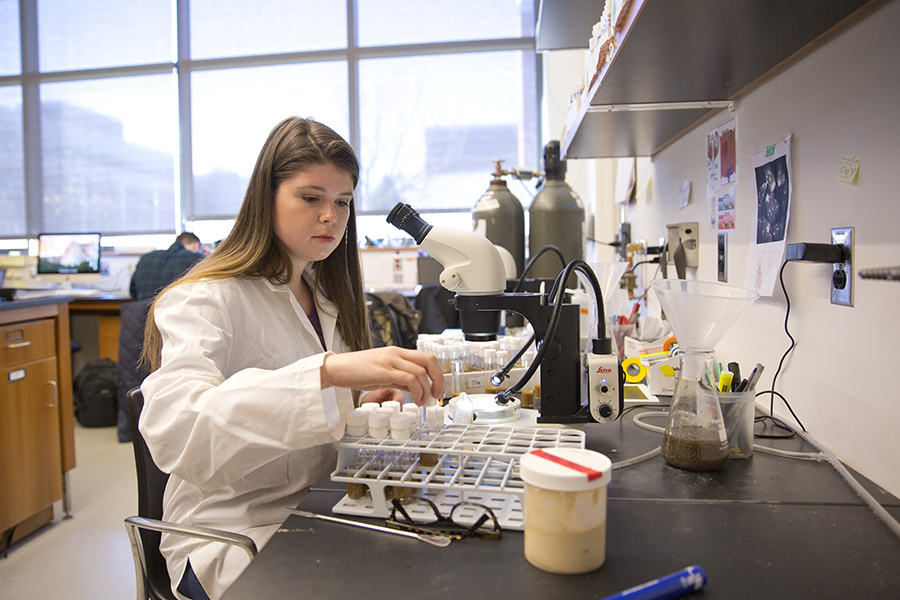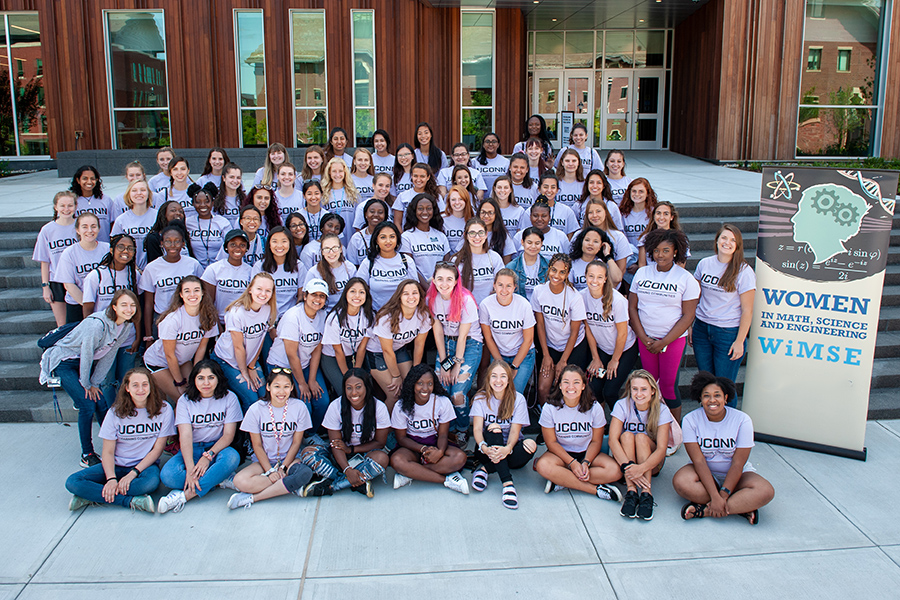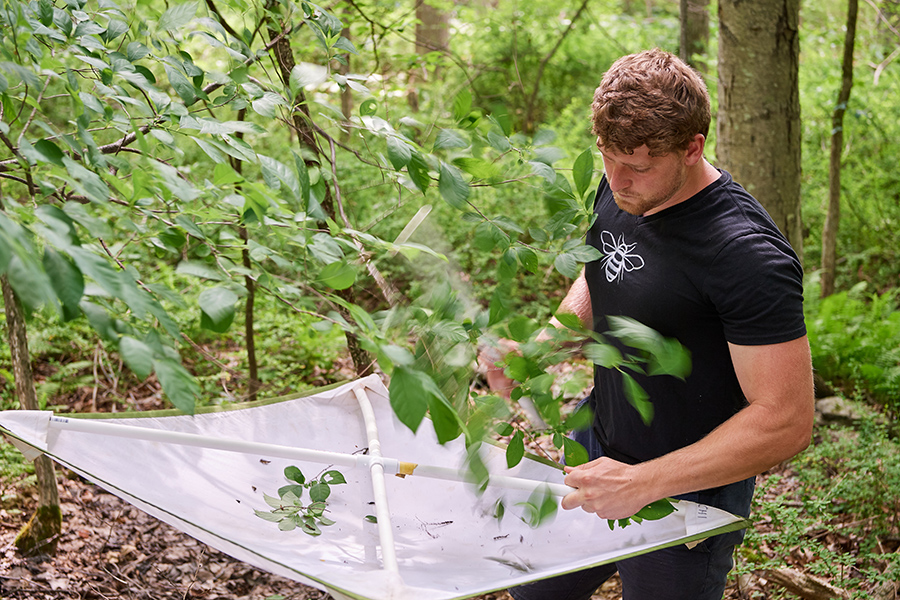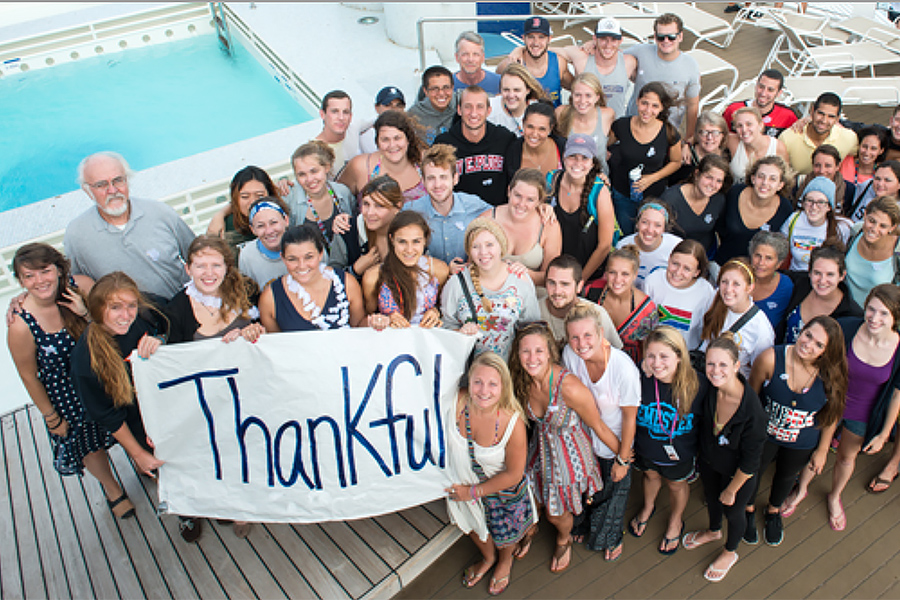Get Involved
A biological sciences major gives you a strong academic foundation for a fulfilling life and career. You can build on this foundation by getting involved in hands-on experiences.
Opportunities at UConn
Through opportunities like research, study abroad, student organizations, and internships, you will:
- Apply your education to real-world problems.
- Learn more about your interests and strengths.
- Build your resume.
- Sharpen skills like teamwork, leadership, time management, and communication.
Research
Becoming a research assistant or leading your own independent project allows you to dive further into biology subfields that interest you most. In addition to gaining professional experience, you’ll build relationships with your professors and peers that can be valuable in job searches and applying to graduate schools.
Biological sciences majors are uniquely positioned at UConn. You can get involved in faculty research labs across multiple departments at UConn, including all three biology departments. You can also take advantage of on-campus research programs that provide you with structure, mentorship, and financial support.
Clubs and Organizations
Biological sciences majors can explore topics they’re passionate about by getting involved in student organizations. By doing so, you'll expand your social circle and build professional skills that employers value.
UConn offers hundreds of organizations and learning communities for you to choose from, including:
- EcoHusky and other community outreach and volunteer groups.
- Professional organizations like the Wildlife Society.
- Learning communities such as EcoHouse and Women in Math, Science, and Engineering (WiMSE).
Visit the UConntact website to search student groups by category.
Internships
Internships are work/learning experiences that give you the opportunity to apply your coursework to hands-on, real-world problems. For biological sciences majors, internships can be a great way to explore an industry to find out if it's right for you.
An internship typically lasts between two to four months and may be part-time or full-time. Many times they can be completed for course credit. Some are paid, while others are not.
For more information about internships for biological sciences major, visit the Center for Career Readiness and Life Skills website or contact your academic advisor.
Study Abroad
Studying abroad can expose you to different cultures and perspectives and provide you with unparalleled opportunities to grow as a student.
Biological sciences majors can study abroad in many exciting places across the world. Examples include:
- National University of Singapore
- EcoHouse Patagonia
- Medical Fellowships in Granada, Spain
- South African Ecology
- Semester at Sea
Through careful planning with your advisor, you can take part in this transformative experience while earning credits toward your major.
Visit UConn’s Experiential Global Learning website to search available UConn programs by major, location, and language. For questions, make an appointment with an Experiential Global Learning advisor.
Examples



